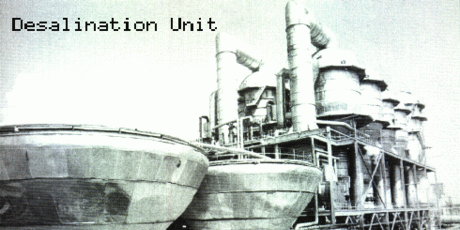The Kazakh and U.S. governments recently moved about 100 tons of high-grade plutonium from a poorly secured location on the Caspian Sea to a better-secured secret location at the diagonally opposite corner of Kazakhstan. The operation was described last week in a three-part eyewitness report on National Public Radio by Mike Shuster, NPR's longtime roving ace reporter.
What made this maneuver so specially important, Shuster explained, was that the plutonium happened to be of the highest quality for nuclear weapons--"ivory" grade, as people in the trade put it.
For those accustomed to thinking of all plutonium as weapons-grade, the Kazakh situation calls for somewhat more explanation than Shuster deemed appropriate for a general audience. It's well known that uranium can either be natural, somewhat enriched for reactors, or highly enriched for weapons, but plutonium is generally thought to be weapons-grade by definition. That's essentially true, but with an important qualification. If the plutonium is produced by neutron bombardment of uranium in a standard power reactor being operated normally, it ends up containing excessive quantities of the higher-isotopes (Pu-241, 243, etc), rendering any weapon made from it prone to premature ignition. Therefore, any country wanting to build good and reliable nuclear weapons will not want to make them from plutonium extracted from standard reactor fuel. (Tthis is why Iran's Bushehr reactor, built with Russian help, is essentially irrelevant to its nuclear-weapons program.)
Even for a general audience, Shuster might have mentioned that the Kazakh plutonium was made in an early breeder reactor, the BN-350, which was customized to both produce electricity and (in facility seen above) desalinate water from the Caspian. Breeder-bred plutonium is higher grade, which is one of several reasons why breeders are such a singularly bad idea.
As Tom Cochran explained in a recent interview here, Russia's breeder program ultimately was a failure because the breeder fuel cycle was never "closed." That is to say, the plutonium produced in the breeders was never processed into fresh reactor fuel, to realize the dream of an endlessly self-propagating fuel supply. Thus it came about that Kazakhstan found itself sitting on enough fuel for make nearly 800 quite satisfactory atomic bombs.



